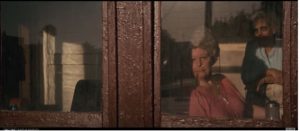
Fig. 1: Elder female couple gaze out in Thelma and Louise (Ridley Scott, 1991, USA)
This blog considers the psychological conundrum of ageing within the academic workplace, offering an autoethnographic approach, reflecting upon passing moments from film and TV, that are both treasured, and engrained in the author’s psyche.
“Drive Louise! Drive! Drive the car!” Gena Davis shouts at Susan Sarandon in Thelma and Louise, after Thelma (Davis) surprisingly improvises a robbery of a local store, to fund their getaway. Moments earlier while the crime is taking place, Sarandon exchanges affective gazes with an elderly female couple viewed in their home behind a reflective glass window (see Figure 1), as she waits in the car. This fleeting representation of an older couple gazing out, signifies the unlikeliness that the protagonists will reach old age, framing the impetus to escape, and the need to keep driving while living in the moment. This thought transports me back 23 years. ….
After departing a career in the sales industry (where I was forever driving from one client to another across the UK), I put my foot hard on the brake, changed gear and took a permanent detour. I became a mature student (aged 42 in 2001) commencing an MA in Television Studies at The University of Bristol. As part of this, our study group had the fortune of being taught in a guest lecture by George Brandt, then aged 81. This one-off lecture offered great insight into Professor Brandt’s longstanding career at Bristol, with recollections of his readings on contemporary TV drama, and his enduring status as an Emeritus Professor, who into his eighties retained all the verve and dynamism of any lecturer that we encountered. As our study group shared lunch with Professor Brandt at a local hostelry (opposite the Drama Department), I reflected on my identity/age in comparison to my peers, who I imagined represented an average age of 22. I also considered Professor Brandt’s great age and was impressed with his commitment to the advancement of academic study in his retirement years.
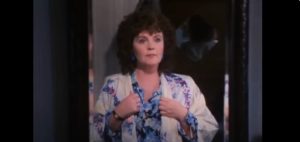
Fig. 2: Pauline Collins as Shirley Valentine
Reflecting on this now, aged 65, and after pursuing an academic career where I have reached the role of Associate Professor, I have a deeper understanding of what it is to be an older academic. An older academic presents a sense of credibility and endurance, and if they have an established foundation of academic outputs, they are potentially viewed as an authority within a subject area. Academia is a privileged and fortunate employment, where a longstanding career can flourish, and advancing age may not be limiting. But the advancement of years often stimulates a psychological conundrum, especially if one catches a glimpse of oneself in a mirror, “who is that doppelganger aging version of me?”
Thoughts at this time of life could vary between – am I deferring retirement, as I just can’t let go? Do I have more to offer, and age is but a number? Am I still trying to be ‘down with the kids’ (pretending to be young) and I just don’t realize it? Am I a supporting elderly character in a longstanding (academic) soap opera, that whilst is entertaining – is grumpy, irritating and redundant, and never seems to hold the lead in any of the episodes, but essentially is a local character? Obviously, this would not happen to Ena Sharples in Coronation Street, but it might happen to Amy Turtle in Crossroads. Age may appear as a signifier of decrepitude, and it is easy to be stereotyped or sidelined.
Despite this, the character of Shirley Valentine in Willy Russell’s play and film has some answers. After planning a holiday abroad without telling her husband, and after an argument with her daughter where she is shamed into potentially abandoning her adventure, she considers that, aged 42, she should face up to the perceived limitations of age. However, after an encounter with her neighbour (Gillian), who mistakenly believes a joke that Shirley made (that she is planning a romantic liaison with some secret lover) she is admired for her bravery. Shirley (Pauline Collins) proudly looks in the mirror, wearing a silk dressing gown that was a gift from Gillian (who was not brave enough to wear this sensual gown – with her imagined lover) and Shirley says:
Well of course I am no longer 42, that was way back in 2001, but the philosophy still applies. At any age you can feel out of place, and a simple encounter with another living being might stimulate you to take stock and realise your ‘drive’ for life.
However, at aged 65 this is a tricky juncture, where the spectre of retirement looms large, and you might feel like you are in neutral, the hand brakes are on, or even worse your car is not a classic but a banger. Of course, the condition of the car didn’t play a part in Thelma and Louise, when the duo consciously chooses to ‘keep driving’, ultimately off a cliff together. However, despite this, they are then suspended in amber forever in film history in that immortal final freeze frame – in mid-air holding hands, as the car never reaches the floor of the ravine (unless you see the alternative ending – don’t do that). But what is this desire to keep driving, when you are not necessarily sure of your Final Destination?
Hutchings et al. (2020) consider the dynamics of ageing academics in relation to Identity Process Theory. This includes six potential motives: self-esteem, self-efficacy, continuity, distinctiveness, belonging, and meaning. As Onyura et al. (2015) suggest these values and a sense of wellbeing may be threatened by retirement. Added to this, academic retirement is often deferred or renegotiated, with some ‘continuing work in the form of fractional contracts and bridging employment, offering individuals opportunities for [or] requirements to negotiate their own careers and retirement paths’ (Hutchings et al. 2020: 1300).
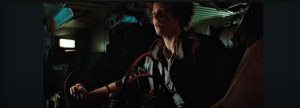
Fig. 3: Sigourney Weaver as Ripley in Aliens (James Cameron 1986, USA)
In reflecting on my motives to keep driving, I consider the research journey as my stimulus for continuity. Following the adage ‘everyone has a book in them’, academics may have many books in them, and maybe it’s a kind of addiction to continue doing research, so maybe my commitment/continuity is energy overdrive. Now I am thinking of the glorious Sigourney Weaver as Ripley in the film Aliens, when after a scene of terrible conflict, she saves the remaining troops by driving them away in a military carrier at high speed with disregard for all in her way, where she is assured/warned: “Ripley it’s all right, you are clear. You will blow the transaxle. You are just grinding metal.” Her instinctive visceral action in driving forward at all costs, was about saving her crew, more instinct and gut reaction, rather than intelligently planned.
Overall as you reach retirement it’s about the momentum of ‘keep on driving’, whatever you do. You don’t want to see the end in sight. However, endings and beginnings are contiguous. Within the academic research world, we continue to involve ourselves in a continuous multifaceted loop of beginnings and endings, as one project starts and another ends, as teaching recommences with a brand-new generation of students each year, as these are miraculously succeeded with an inspiring new cohort, eager to learn.
However, remember how you felt when you completed your PhD, you were likely warned by your supervisor that completion would make you feel all at once – euphoric, and depressed. Despite this, every ending potentially leads to a new beginning, in research and teaching.
Non-academic friends of mine seem to be retiring in their droves. Their new beginnings are ‘spending more time with the family’, ‘starting a new hobby or pastime’, ‘returning to work as a part time consultant’, or generally ‘finally having time to relax’. Do academics resist that? Well clearly no, as many of my peers in academia have also retired.
In the academic world, the concept of age or at least maturity is generally associated with the achievement of sage knowledge. Emeritus Professor Brandt clearly evoked that, as our student cohort of mixed ages (back in 2001) held on to every word that he uttered, within the classroom and within the hostelry. Also, more importantly in our post lecture ‘pub lunch’ socialisation, age didn’t seem to matter, but rather camaraderie, respect and gratitude, that we had this moment of conversation and learning, as a communion of equality.
Just as Shirley Valentine can flip her psychology, by simply reassessing the value of her identity, through doing research on herself, a new sense of self emerges that is not stereotyped by the idea of age limits. At the same time, this was not an isolated experience, it involved an interaction with the world and reaches to the very essence of instinct and desire to keep on driving, in the company of others and seek out, or stumble upon, the adventures that are yet to take place.
However, we should be wary. Remember Speed starring Sandra Bullock, this film is all about maintaining a certain speed to avoid a terrorist’s bomb exploding, and in a key juncture the terrorist is briefly fooled by a video loop that broadcasts the illusion that the bus is still moving with all hostages retained (when in fact they are escaping). To keep on driving does involve momentum, but it should not be a repetition of what we have done before repeatedly – we are going to get bored, or obliviously deteriorate. The academic who might “Cross the Rubicon” of retirement age (66 for my age group) should consider that new vistas potentially lie ahead, which might involve slowing down, and equally could involve speeding ahead. More importantly diversions can disrupt a journey, but equally they may involve new encounters never imagined. As the dubious character of Costos (Tom Conti) tells Shirley Valentine: “Dreams. They are never in the place you expect them to be.” Don’t plan too far ahead, nor wait too long for the accidental euphoric encounter. Just remember to keep on driving, aware that the looming reflective image of old age is not a mirror of destiny, but a fluid encounter with an imagination of self, not necessarily fixed, or predestined. Advancing age is different for every person, you just don’t know what’s going to happen. As Marian (Sarah Chadwick) tells Mitz (Hugo Weaving) in The Adventures of Priscilla The Queen of The Desert: “Assumption, my dear, … is the mother of all Fuck-ups.”

Fig. 4: Hugo Weaving and Sarah Chadwick in The Adventures of Priscilla, Queen of the Desert (Stephan Elliott, 1994, Australia)
Dr Christopher Pullen is Associate Professor in Media and Inclusivity at Bournemouth University. He is widely published in the areas of sexuality, media representation and performance, including the books Straight Girls and Queer Guys: The Hetero Media Gaze in Film and Television (Edinburgh University Press 2016), Heroism, Celebrity and Therapy in Nurse Jackie (Routledge 2018) and Pedro Zamora, Sexuality and AIDS Education: The Autobiographical Self, Activism andThe Real World (Cambria Press 2018). He completed a recent British Academy funded project which focused on the experiences of LGBT refugees in the UK who engage with NGO help services, presenting evidence to the UK government Women and Equalities Select Committee. His current research focusses on HIV/AIDS folk art and digital memorial, engaging with autoethnography, and the dynamics of social and cultural space.
References
Hutchings, K., Wilkinson, A., & Brewster, C. (2020). Ageing academics do not retire – they just give up their administration and fly away: a study of continuing employment of older academic international business travellers. The International Journal of Human Resource Management, 33(7), 1296–1325. https://doi.org/10.1080/09585192.2020.1754882
Onyura, B., Bohnen, J., Wasylenki, D., Jarvis, A., Giblon, B., Hyland, R., Silver, I., & Leslie, K. (2015). Reimagining the self at late-career transitions: How identity threat influences academic physicians retirement considerations. Academic Medicine, 90(6), 794–801. doi:10.1097/ACM.0000000000000718


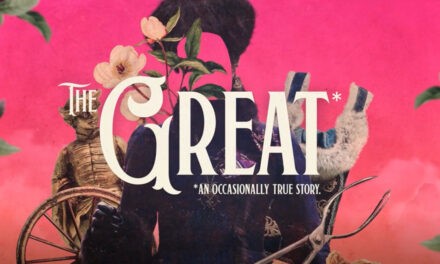


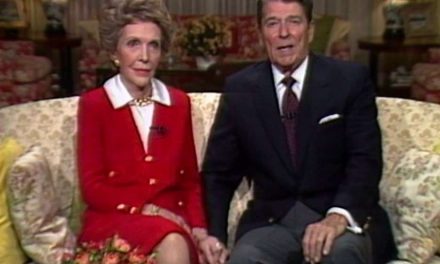
this is great – ageing and academia is an important topic that deserves more writing and research. I’m not sure there is an assumption of sage knowledge with age anymore though. Academic life now involves more ingenious grant proposals and projects that do not so much seek to deepen knowledge as escape from teaching and advance individual careers. In 10 years time will there still be camaraderie gratitude and respect for the Emeritus Professor over lunchtime drinks? I doubt we even have it now.